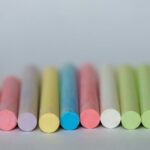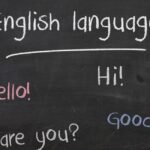Have you ever struggled to finish a book, no matter how amazing it is?
Do you feel like reading isn’t your thing?
If so, don’t worry, you’re not alone! Many people start reading books but never seem to finish them. It could be because of the way the content is delivered, or perhaps it doesn’t match your energy levels.
In this blog post, we’re going to share with you a simple method that can help you read 100 books a year! This method is based on the different categories of books and how they affect our energy levels.
By understanding these categories, you can train your eyes and focus to enjoy reading and develop a reading habit that will change your life.
The Categories of Books
Books can be categorized based on the way their content is delivered and how it affects our energy levels. There are three categories:
- Informative Books: These books deliver their content in clear chunks and tend to be in chapters. They are meant to educate us on a specific topic or bits of information. Informative books can be “swappers” in the sense that you may want to switch to another book halfway through or “stoppers” where you may get too tired of reading something dense for a long time.
- Expressive Books: These books share the thoughts and opinions of the writer. They tend to be essays or philosophy pieces where the information is delivered in tiny little chunks, usually around a paragraph. These are also “stoppers” since they take away our energy, and it’s challenging to get through them in one sitting.
- Story Books: These books deliver their content in one big chunk, and there is a clear line between the beginning and the end. Story books include well-written memoirs and fictional books that keep you interested and entertained from start to finish.
How to Approach Each Category
Now that you understand the different categories of books let’s talk about how to approach them.
Informative Books
- Look at the title and synopsis to understand what the book is about.
- Take a flick through the book to see the language level. A book with straightforward language that you’re interested in or familiar with will be something you’ll want to binge-read.
- Divide the book into smaller sections and set a reading goal for each section. For example, you could aim to read one chapter per day.
Expressive Books
- Understand that these books are not meant to be binge-read. Take your time and think about each concept.
- Read one paragraph or concept at a time and take a break to think about it.
- Make notes about your thoughts and reactions to each concept.
Story Books
- Choose a book that interests you and that you can’t wait to read.
- Set aside some time every day to read the book.
- Try to read a significant portion of the book each time you sit down to read it.
Additional Tips for Reading
- Set reading goals and stick to them. For example, aim to read for 30 minutes every day or read one book per week.
- Make reading a habit. Incorporate reading into your daily routine, such as reading before bed or during your lunch break.
- Keep a record of the books you read, and make notes about what you liked and didn’t like about each book. This will help you choose books that you’re more likely to enjoy in the future.
- Join a book club or online reading community to discuss books with others and get recommendations.
Conclusion
In conclusion, the key to developing a successful reading habit is not to force yourself to read every book you come across but to train your eyes and focus to enjoy reading.
By categorizing books based on how they deliver content and how they affect your energy, you can choose the right type of book that matches your current needs and interests.
Informative books are great for educating yourself on a specific topic, expressive books are ideal for sharing the thoughts and opinions of the writer, and story books are perfect for entertainment and enjoyment.
By considering these factors, you can choose the right book that matches your energy levels and keep yourself engaged in reading.
With a little bit of effort and the right approach, you too can become an avid reader and enjoy the benefits of reading, such as improved vocabulary, better focus and concentration, and enhanced imagination and creativity.
FAQ
Q: What are the three categories of books mentioned in the video?
A: The three categories of books mentioned in the video are informative books, expressive books, and story books.
Informative books are great for educating yourself on a specific topic, expressive books are ideal for sharing the thoughts and opinions of the writer, and story books are perfect for entertainment and enjoyment.
Q: How can I train myself to enjoy reading?
A: By categorizing books based on how they deliver content and how they affect your energy, you can choose the right type of book that matches your current needs and interests.
Additionally, you can set aside a dedicated time for reading each day, eliminate distractions, and start with shorter books or chapters to build momentum.






